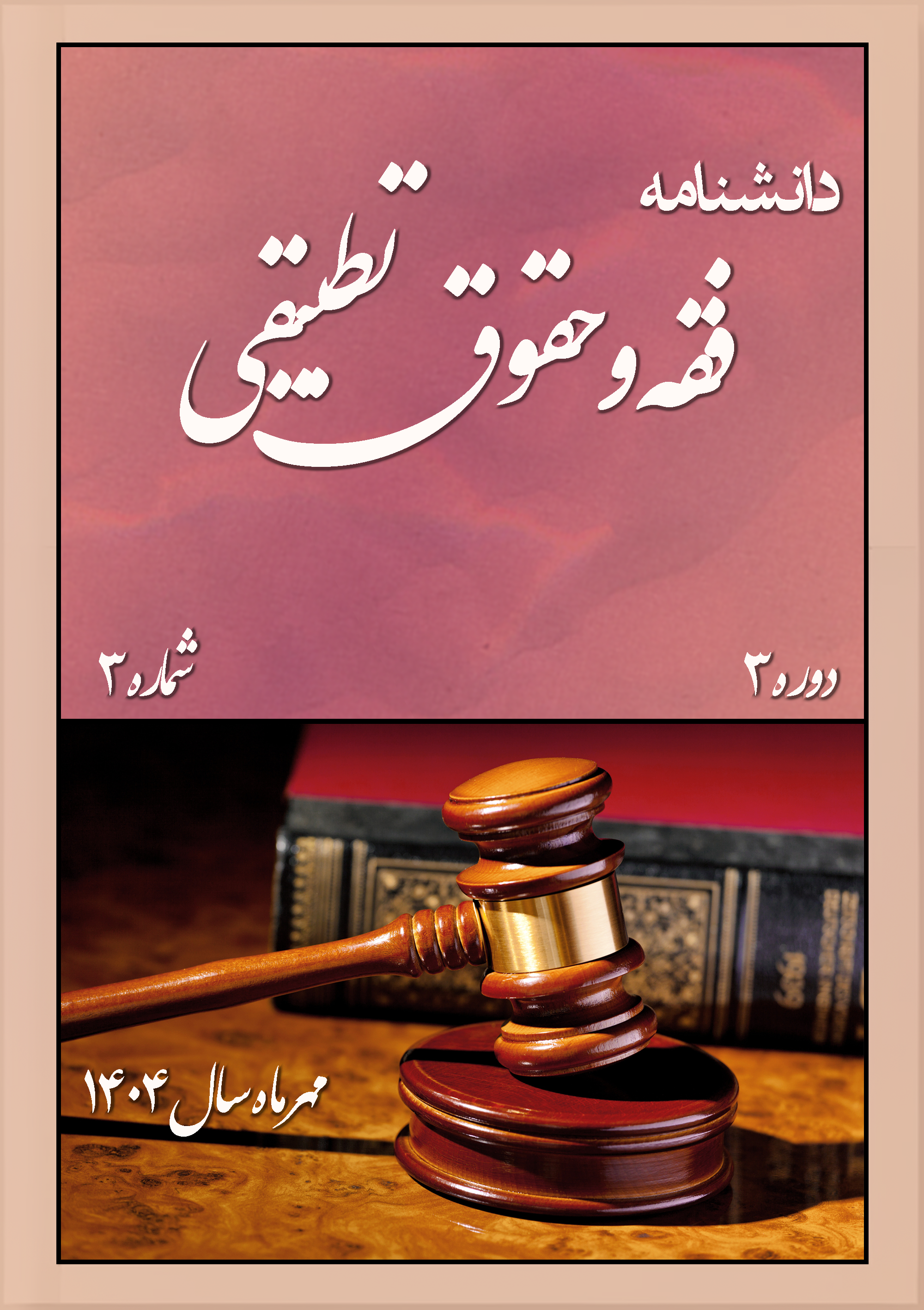The Substantive Approach to the Rule of Law in the Jurisprudence of the International Court of Justice
Keywords:
principle of law, Rule of Law, Human Rights , International Court of Justice, , Legitimacy, LegalityAbstract
To achieve the goals of the United Nations, the rule of law must be upheld. The International Court of Justice (ICJ), in accordance with its Statute, plays a key role in establishing the rule of law and has developed this concept in its practical jurisprudence. The Court’s practice has evolved from a formalistic interpretation of the rule of law toward a substantive approach. In issuing judgments—which represent the most significant manifestation of the rule of law—the Court contributes to the legitimacy of the rule of law by identifying legal norms and, at times, through changing its precedent or applying broad interpretations. The central question of this study is how the ICJ’s substantive approach can contribute to the development and legitimacy of the rule of law. By examining both contentious and advisory opinions of the Court, this research seeks to provide a clear answer to this fundamental question. The rule of law, as a mechanism to constrain arbitrary power by states, plays a crucial role in legal legitimacy. Through its decisions, the Court not only resolves disputes but also reinforces the rule of law by broadly interpreting and applying legal principles such as the right to self-determination, the right to life, the prohibition of indiscriminate attacks, the principle of distinction, and the prohibition of torture. These are considered substantive elements of the rule of law. In doing so, the Court significantly contributes to the establishment and legitimacy of the rule of law and advances the development of international law.
Downloads
References
Casals, N. T. (2022). The Legitimacy Of International Courts: The Challenge Of Diversity. In.
Hemmati Khah, F., Rouhi, E., & Mousavi, S. F. (2024). Evolution in the approach of the International Court of Justice from legality to legitimacy in the advisory opinion on the legitimacy of the use of nuclear weapons. Legal Studies in Digital Age, 3(1), 46-55.
Hernandez, G. I. (2014). The International Court Of Justice And The Judicial Function. https://doi.org/10.1093/acprof:oso/9780199646630.001.0001
ICJ. (1949). Reparation For Injuries Suffered In The Service Of The United Nations, Advisory Opinion 11 April 1949.
ICJ. (1951). Reservation To The Convention On The Prevention And Punishment Of The Of The Crime Of Genocide. http://Www.Icj-Cij.Org/Docket/Index.Php?P1=3&P2=2&Case=12&Code=Ppcg&P3=4
ICJ Reports. (1971). Legal Consequences for States of the Continued Presence of South Africa in Namibia (South West Africa) notwithstanding Security Council Resolution 276 (1970), Advisory Opinion.
ICJ Reports. (2004). Advisory Opinion About Legal Consequences Of The Construction Of A Wall In The Occuopied Palestinian Territory.
Jennings, R. Y. (1998). The Role Of The International Court Of Justice. BYIL, 68, 1-41. https://doi.org/10.1093/bybil/68.1.1
Markaz Malimiri, A. (2006). The Rule of Law: Concepts, Foundations, and Interpretations. Legal Studies Office, Research Center of the Islamic Consultative Assembly.
Maurice, F. (2011). K. Oellers-Frahm, Lawmaking Through Advisory Opinions? GLJ, 12, 1033.
Mayr, T. F., & Singer, J. M. (2016). Keep The Wheels Spinning: The Contributions Of Advisory Opinions Of The International Court Of Justice To The Development Of International Law. In.
Park, L. (2018). The International Court And Rule-Making: Finding Effectiveness. In.
Peerenboom, R. (2005). Human rights and rule of law: What's the relationship? Georgetown Journal of International Law, 36, 05-31.
Rasekh, M. (2006). Theory of Rights and International Human Rights. Legal Research Journal(41).
Rosenne, S. (2006). Note7 (Vol. III).
Rouhi, E. (2014). Analytical Review of the Merits Judgment of the International Court of Justice (26 February 2007) on the Genocide in Bosnia and Herzegovina and Its Positivist Critique Meybod.
Rouhi, E. (2018). The Role of the Rule of Law in Supporting and Strengthening Human Rights. Citizens' Rights Publishing.
Rouhi, E., Dezaki, L. R., & Karveh, M. J. (2017a). Protection of Prisoner's Human Rights in Prisons through the Guidelines of Rule of Law. Journal of Politics and Law, 10(1), 71. https://doi.org/10.5539/jpl.v10n1p71
Rouhi, E., Dezaki, L. R., & Karveh, M. J. (2017b). Rule of Law and Its Guidelines and Indicators for Judiciary in Human Rights Issues. Journal of Politics and Law, 10(1), 98. https://doi.org/10.5539/jpl.v10n1p98
Rouhi, E., Raisi, L., & Jalali, M. (2016). The Role of Lawyer in Establishment of Rule of Law and Protection of Human Rights. Mediterranean Journal of Social Sciences, 7(4). https://doi.org/10.5901/mjss.2016.v7n4p28
Ruda, J. M. (1991). Some Of The Contributions Of The International Court Of Justice To The Development Of International Law. N.Y.U. J. Int'l L. & Pol., 24, 35.
UN World. (1993). Confernce On Humanrighs:The Vienna Declation And (Programme Of Action, Iun,1993,Section,Para,5.
Weissbrodt, D., & Andrus, B. (1988). The Right To Life During Armed Conflict: Disabled People's Internationnal V. United States. Harvard International Law Journal, 29, 59.
Zarei, M. H. (2008). Rule of Law and Democracy: Compatibility or Contradiction? Legal Studies Journal, Shahid Beheshti University, 11(48).
Downloads
Published
Submitted
Revised
Accepted
Issue
Section
License
Copyright (c) 2025 فوزیه همتی خواه (نویسنده); عباد روحی; فرید آزاد بخت (نویسنده)

This work is licensed under a Creative Commons Attribution-NonCommercial 4.0 International License.










